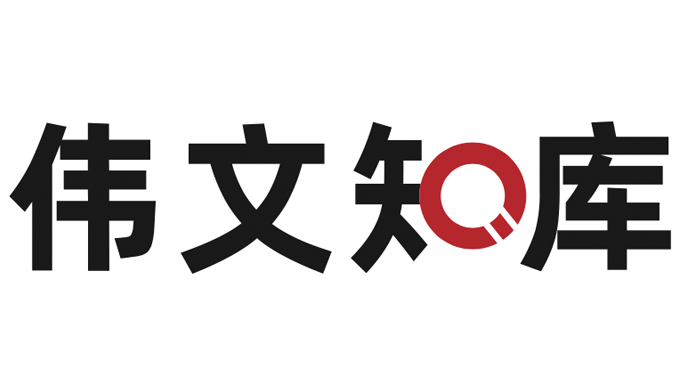本文授权转载自国际贸易救济法
为反制美国对钢铁、铝制品采取的232国家安全调查措施,中国、印度及欧盟分别于2018年4月5日、5月18日和6月1日,通过世界贸易组织(WTO)争端解决机构(DSB)向美方提出磋商请求,启动了争端解决程序。
中印欧各自提出的DSB磋商请求的基本观点一致,即均认为美方的232措施属于WTO项下的保障措施,但在具体的磋商依据、涉诉措施、援引条款和核心主张方面,仍然存在差异。为分析、借鉴其他国家做法,并在此基础上协调立场,以期共同应对美国232措施,大成Dentons国际贸易团队对中、印、欧三方的磋商请求文件进行了比对,并做以下列表梳理:
(1)比对范围包括:磋商依据、涉诉措施、援引条款和核心主张;
(2)红色字体为印度或欧盟所提出的与中方存在的差异;
(3)如中印欧三方主张一致,表格采取通栏说明;
(4)如三方中两方主张一致,则做合并单元格。
总体而言,中方首先在WTODSB提出,美国232措施实质上属于保障措施;印度方面则进一步明确提出了“灰色区域”措施和“数量限制”的问题;欧盟方面,除了详细列明各项as applied违规外,还就美国232调查规则提出了“as such”违反主张。
|
中国 |
印度 |
欧盟 |
|
|
DSB案号 |
DS544 |
DS547 |
n/a |
|
磋商依据 |
DSU第1条 |
||
|
DSU第4条 |
|||
|
GATT第22条 |
GATT第22:1条 |
||
|
AOS第14条 |
|||
|
涉诉措施 |
Adjusting Imports of Steel Into the United States, including the Annex, To Modify Chapter 99 of the Harmonized Tariff Schedule of the United States (Presidential Proclamation 9705, issued on 8 March 2018) |
||
|
Adjusting Imports of Aluminum Into the United States, including the Annex, To Modify Chapter 99 of the Harmonized Tariff Schedule of the United States (Presidential Proclamation 9704, issued on 8 March 2018) |
|||
|
Adjusting Imports of Steel into the United States (Presidential Proclamation 9711, issued on 22 March 2018) |
|||
|
Adjusting Imports of Steel into the United States (Presidential Proclamation 9740, issued on 30 April 2018) |
|||
|
Presidential Proclamation of 31 May 2018, Adjusting Imports of Steel into the United States, amending Proclamation 9705 of 8 March 2018, as amended by Proclamation 9711 of 22 March 2018 and Proclamation 9740 of 30 April 2018 |
|||
|
Adjusting Imports of Aluminum into the United States (Presidential Proclamation 9710, issued on 22 March 2018) |
|||
|
Adjusting Imports of Aluminum into the United States (Presidential Proclamation 9739, issued on 30 April 2018) |
|||
|
Presidential Proclamation of 31 May 2018, Adjusting Imports of Aluminum into the United States, amending Proclamation 9704 of 8 March 2018, as amended by Proclamation 9710 of 22 March 2018 and Proclamation 9739 of 30 April 2018 |
|||
|
Requirements for Submissions Requesting Exclusions From the Remedies Instituted in Presidential Proclamations Adjusting Imports of Steel Into the United States and Adjusting Imports of Aluminum Into the United States; and the Filing of Objections to Submitted Exclusion Requests for Steel and Aluminum (U.S. Department of Commerce) |
|||
|
Section 232 Tariffs on Aluminum and Steel, Additional Duty on Imports of Steel and Aluminum Articles under Section 232 of the Trade Expansion Act of 1962 (U.S. Customs and Border Protection) |
|||
|
Section 232 of the Trade Expansion Act of 1962, as amended (19 U.S.C. §1862) |
|||
|
The Effect of Imports of Steel On the National Security, An Investigation Conducted Under Section 232 of the Trade Expansion Act of 1962, As Amended (U.S. Department of Commerce, 11 January 2018) |
|||
|
The Effect of Imports of Aluminum On the National Security, An Investigation Conducted Under Section 232 of the Trade Expansion Act of 1962, As Amended (U.S. Department of Commerce, 17 January 2018) |
|||
|
For each of these measures referred to above, this request also covers any further amendments, supplements, replacements, extensions, implementing measures or other related measures, including any adjustments as between tariffs, tariff quotas or quotas. |
|||
|
援引条款 |
Articles XIX:1(a), XIX:2 of the GATT 1994 |
||
|
Articles 2.1, 2.2, 4.1, 4.2, 5.1, 7, 11.1(a), 12.1, 12.2 and 12.3 of the Agreement on Safeguards |
Articles 2.1, 2.2, 4.1, 4.2, 5.1, 7, 11.1(a), 12.1, 12.2 and 12.3 of the Agreement on Safe |
||
|
Articles 3.1 of the Agreement on Safeguards |
|||
|
Articles 9.1 of the Agreement on Safeguards |
|||
|
Articles 9 of the Agreement on Safeguards |
|||
|
Article 11.1(b) of the Agreement on safeguards |
|||
|
Article XI:1 of the GATT 1994 |
|||
|
Article II:1(a) and (b) of the GATT 1994 |
|||
|
Article I:1 of the GATT 1994 |
|||
|
Article X:3(a) of the GATT 1994 |
|||
|
Article XI:1 of the GATT 1994 |
|||
|
Article XIX of the GATT 1994 |
|||
|
Article XVI:4 of the WTO Agreement |
|||
|
核心主张 |
美方措施实质上属于保障措施。 |
美方措施在效果和实质上均属保障措施。 |
违反保障措施协定采取GATT第19条项下的措施。 |
|
美方未能充分证明存在“不可预见的发展”“进口产品数量确属巨大”“情况确属严重”,以至“对国内产业造成严重损害或威胁” |
未明确说明,但援引规则相同 |
在相关产品并未在“不可预见的发展”情况下,“进口产品数量确属巨大”且“情况确属严重”,以至“对国内产业造成严重损害或威胁”的情况下,停止关税减让。 |
|
|
违反保障措施协定项下的通知、磋商等程序性规则 |
未明确说明,但援引规则相同 |
违反保障措施协定项下的通知、磋商等程序性规则 |
|
|
违反实施保障措施的非歧视性原则 |
|||
|
未实施保障措施协定项下的适当调查,亦未公布相关的法律、证据及分析报告。 |
|||
|
未就保障措施协定项下的严重损害或严重损害威胁做出认定。 |
|||
|
未就保障措施协定项下的其他对国内产业造成影响的因素进行分析,亦未就进口激增与严重损害及严重损害威胁之间的因果关系进行论证。 |
|||
|
美方措施超过保障措施协定项下救济措施的必要限度。 |
|||
|
未就进口份额在3%以下,合计份额不超过9%的发展中国家做出排除。 |
|||
|
违反实施保障措施期间的合理性规则 |
未明确说明,但援引规则相同 |
违反实施保障措施的必要期间,亦未界定4年期限以及按照固定时间间隔逐渐放宽措施。 |
|
|
违反关税约束及减让规则 |
|||
|
违反最惠国待遇原则 |
|||
|
违反统一、公证、合理的执法原则 |
|||
|
美方措施寻求自愿出口限制等“灰色区域”措施 |
|||
|
美方措施寻求数量限制 |
|||
|
美国《1962年贸易扩展法》的232节“as such”以国家安全为由,对进口产品实施加征关税等措施,借机对其国内产业进行保护,使其免受竞争并得以自保的做法,违反美国应当确保其国内法律法规符合WTO规则的义务。 |
|||
阅读全文



